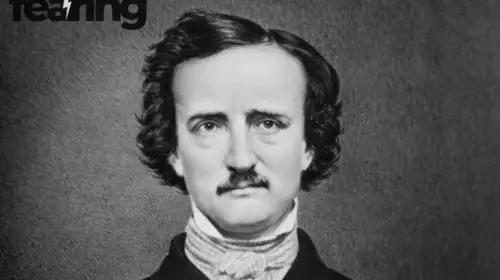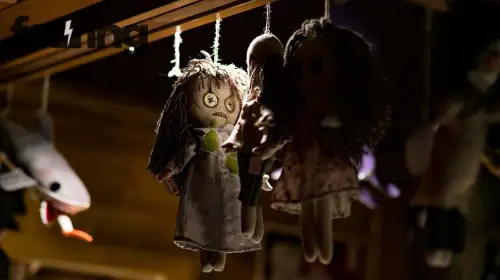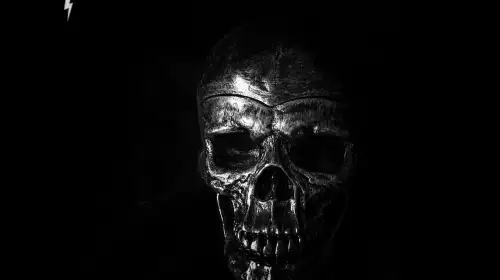H. P. Lovecraft is the writer who made fear infinite. Instead of haunted houses or vampires, he gave the world invisible gods, endless darkness, and the terror of insignificance. Through stories like The Call of Cthulhu and At the Mountains of Madness, he transformed horror into philosophy — a confrontation with the vast, uncaring universe.
“The oldest and strongest emotion of mankind is fear, and the oldest and strongest kind of fear is fear of the unknown.” — H. P. Lovecraft (Supernatural Horror in Literature, 1927)
The Life Of H. P. Lovecraft
| Key Detail | Information |
|---|---|
| Full Name | Howard Phillips Lovecraft |
| Born | August 20, 1890 – Providence, Rhode Island, USA |
| Died | March 15, 1937 – Providence, Rhode Island, USA |
| Occupation | Writer, essayist, amateur astronomer |
| Major Works | The Call of Cthulhu, The Shadow over Innsmouth, At the Mountains of Madness |
| Central Themes | Cosmic insignificance, forbidden knowledge, ancient gods |
| Genre Contribution | Founder of Cosmic Horror |
| Influence | Horror, science fiction, popular culture, video games, and cinema |
Early Life And Isolation
Lovecraft was born into an upper-middle-class New England family but grew up surrounded by instability. His father suffered a nervous breakdown and was institutionalized when Lovecraft was three; his mother later developed severe mental illness as well.
A sickly child, he spent most of his youth indoors, devouring books on astronomy, mythology, and Gothic fiction. He idolized science but distrusted religion, an attitude that would define his later writing.
Literary biographer S. T. Joshi describes him as “a man shaped by solitude, both terrified of and addicted to his own imagination.”
The Creation Of Cosmic Horror
While other horror writers focused on the human soul, Lovecraft turned outward — to the universe itself. He imagined a cosmos governed by vast, indifferent entities whose very existence could shatter the human mind.
His masterpiece, The Call of Cthulhu (1928), introduced one of literature’s most enduring monsters: a sleeping god beneath the sea, whose awakening could end reality itself.
Core Principles Of Lovecraft’s Horror:
Indifference of the Universe: Humanity means nothing in the face of cosmic forces.
Forbidden Knowledge: The pursuit of truth leads to madness.
Non-Euclidean Worlds: Reality is fragile and incomprehensible.
Legacy of Ancient Beings: Civilization is built on forgotten horrors.
“We live on a placid island of ignorance in the midst of black seas of infinity.” — The Call of Cthulhu
Lovecraft’s “Cthulhu Mythos” wasn’t just a set of stories — it was a mythology, complete with gods, cults, and grim philosophies that later inspired authors, filmmakers, and game designers worldwide.
Poverty And Obscurity
Lovecraft never achieved fame during his lifetime. He published mainly in pulp magazines like Weird Tales, earning little money and often ghostwriting for others. He lived frugally in Providence, writing letters that filled over 100,000 pages — a record among literary correspondences.
Despite his poverty, his intellect was vast. His essays on materialism, atheism, and aesthetics reflect a mind more interested in cosmic truth than in commercial success.
Yet Lovecraft’s worldview was marred by personal prejudice. His racism and xenophobia — reflected in works like The Horror at Red Hook — have sparked complex debates about separating art from artist. Modern scholars acknowledge both his genius and his bias, understanding that fear of the “Other” shaped much of his cosmic vision.
Literary Style And Vision
Lovecraft’s prose is dense, archaic, and hypnotic — full of adjectives like blasphemous, eldritch, and cyclopean. But beneath the stylistic excess lies a unique rhythm: a sense of awe so large that language collapses.
His influences included Edgar Allan Poe, Lord Dunsany, and Arthur Machen, yet he moved horror away from moral punishment and into existential dread.
Lovecraft’s Signature Techniques:
Epistolary Framing – stories told through journals and reports.
Scientific Credibility – blending realism with the supernatural.
Minimal Resolution – mysteries left deliberately unsolved.
Cosmic Scale – terror without hope or redemption.
The Cthulhu Mythos And Its Legacy
Lovecraft’s fictional universe — inhabited by deities like Cthulhu, Nyarlathotep, and Azathoth — became a shared mythos later expanded by writers such as August Derleth, Robert E. Howard, and Clark Ashton Smith.
This universe still thrives today in:
Films: The Thing, The Mist, The Lighthouse
Games: Bloodborne, Call of Cthulhu, The Sinking City
Books: The Ballad of Black Tom (Victor LaValle), Lovecraft Country (Matt Ruff)
Music & Art: countless metal bands and visual artists reinterpreting his cosmic visions
“The true Lovecraftian horror is not death — it’s realization.” — The Atlantic Review of Horror
Death And Posthumous Fame
Lovecraft died of intestinal cancer in 1937 at age 46, virtually unknown. But his friends preserved his stories and published them after his death. By the mid-20th century, he had become a cult icon — cited by Stephen King as “the twentieth century’s greatest practitioner of the classic horror tale.”
Today, Lovecraft’s mythos is not just literature — it’s a global language of fear. His creatures appear in films, role-playing games, and even AI art, symbolizing our anxiety about the limits of human knowledge.
Table Of Essential Works
| Title | Year | Theme |
|---|---|---|
| The Call of Cthulhu | 1928 | Cosmic indifference and forbidden knowledge |
| At the Mountains of Madness | 1931 | Ancient alien civilizations in Antarctica |
| The Shadow over Innsmouth | 1936 | Human hybridization and degeneration |
| The Colour Out of Space | 1927 | Science, contamination, and despair |
| The Dunwich Horror | 1929 | Occultism, family secrets, and invisible monsters |
FAQ
Q1: What defines cosmic horror?
A1: A sense of existential dread — the belief that humanity is insignificant and powerless in an incomprehensible universe.
Q2: Was Lovecraft racist?
A2: Yes, and his prejudice deeply influenced his worldview. Modern readers study him critically, acknowledging both genius and flaw.
Q3: Why is Lovecraft so influential today?
A3: Because his vision of the unknown perfectly mirrors our modern fears — from technology to cosmic isolation.
Q4: What makes his style unique?
A4: His scientific realism combined with overwhelming dread, blurring fact and fiction.
Q5: Who continues his legacy?
A5: Writers like Neil Gaiman, Victor LaValle, and Caitlín R. Kiernan reinterpret his universe for new generations.
Sources
Encyclopaedia Britannica – Biography of H. P. Lovecraft
The H. P. Lovecraft Archive – Complete Works and Letters
The Paris Review – Lovecraft and the Fear of the Unknown
The Atlantic – Why Lovecraft’s Cosmic Horror Still Terrifies





